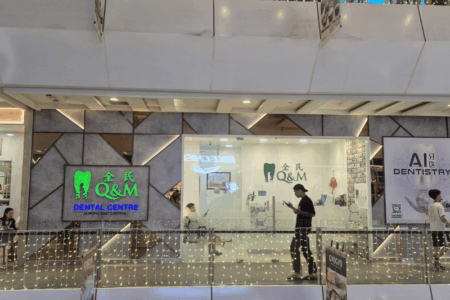It’s no secret that Singapore REITs have taken a beating amid a rising interest rate environment.
Some, such as Mapletree Industrial Trust (SGX: ME8U), have recovered and are hovering close to their 52-week highs. Meanwhile, other REITs such as Keppel Pacific Oak US REIT (SGX: CMOU) remain far below their peak.
Strange, isn’t it? What gives?
Well, when things get confusing, it is always useful to go back to the basics.
Firstly, what do REITs bring to the table?
Simply said, REITs offer the opportunity for common shareholders to own properties at a fraction of what they cost.
The available assets include shopping malls, hospitals, data centres and office buildings, all properties that are typically out of reach for investors like you and me.
Secondly, REITs make them available at a low cost.
Today, you can own ParkwayLife REIT’s (SGX: C2PU) portfolio of hospitals and nursing homes for less than S$370 per lot of units.
Thirdly — and this is the key point — these properties, if managed well, can generate rental which is then paid out as a dividend to unitholders.
Therein lies the clues as to what we should look for.
Sponsored growth
Property developers often act as REITs sponsors, providing a pipeline of assets to the REITs.
Why would they do that?
To understand the relationship between the property developer and the REIT, consider the point-of-view (POV) from the two parties.
Property developers are in the business of building properties and selling them.
To do so, developers usually borrow money to finance the development project.
Ideally, newly developed properties are sold as soon as possible to pay back the loans, and to recycle it into new properties.
But large properties such as office buildings and malls are not always easy to sell.
This is where REITs offer a way out.
For instance, a property developer may earn between a 15% to 20% net margin from building and selling the property. In contrast, keeping the property post-development may only earn the developer a rental yield of 5% to 8%.
Hence, selling the property to a REIT makes sense.
Firstly, the developer can still earn fees by being the REIT manager. Secondly, they can still retain a stake in the REIT.
For REIT unitholders, it works too.
As we said earlier, buying REITs allows you access to properties that you otherwise would not be able to buy on your own.
In most cases, you get an instantly-diversified portfolio with 100s of tenants.
It’s a win-win arrangement for both parties.
Traits of a good sponsor
Members of The Smart Dividend Portfolio would have heard this part before. Within our service, we have almost two hours of focused presentations on REITs alone.
We’ll give you, our dear readers, a peek behind the scenes.
Consider Funan — currently known as an integrated development with apartments, retail, and offices, all under one roof.
But that wasn’t always the case.
The integrated development, which is owned by CapitaLand Integrated Commercial Trust (SGX: C38U), was previously an IT-focused mall, aptly named Funan Digitalife Mall.
Back in mid-2016, the old Funan Digitalife Mall was torn down. In its place, the renamed integrated development, Funan, was rebuilt back up to what you know today.
Now, pause for a second and consider the work needed to get to where we are currently.
Firstly, REITs may not have the expertise to conduct a project redevelopment.
To tear down and rebuild into an integrated development, the REIT needs to partner with a property developer. And who better to partner than its own sponsor, previously known as CapitaLand Group.
That’s not all.
During and after the redevelopment, CapitaLand Group is able to bring in expertise in developing and managing offices and apartments.
Now, that’s an example of what a sponsor can do for a REIT.
Attention Dividend Investors: Now’s the time to tap into high-yield REITs in Singapore. We’ve just released our latest report, revealing the full details on five Singapore REITs, each boasting distribution yields of 5.5% or higher. With a focus on stability and performance, these REITs could be the missing piece in your dividend-focused portfolio. Download the FREE report now to unlock these high-yield treasures.
Follow us on Facebook and Telegram for the latest investing news and analyses!
Disclosure: Chin Hui Leong owns shares of Mapletree Industrial Trust and ParkwayLife REIT.





